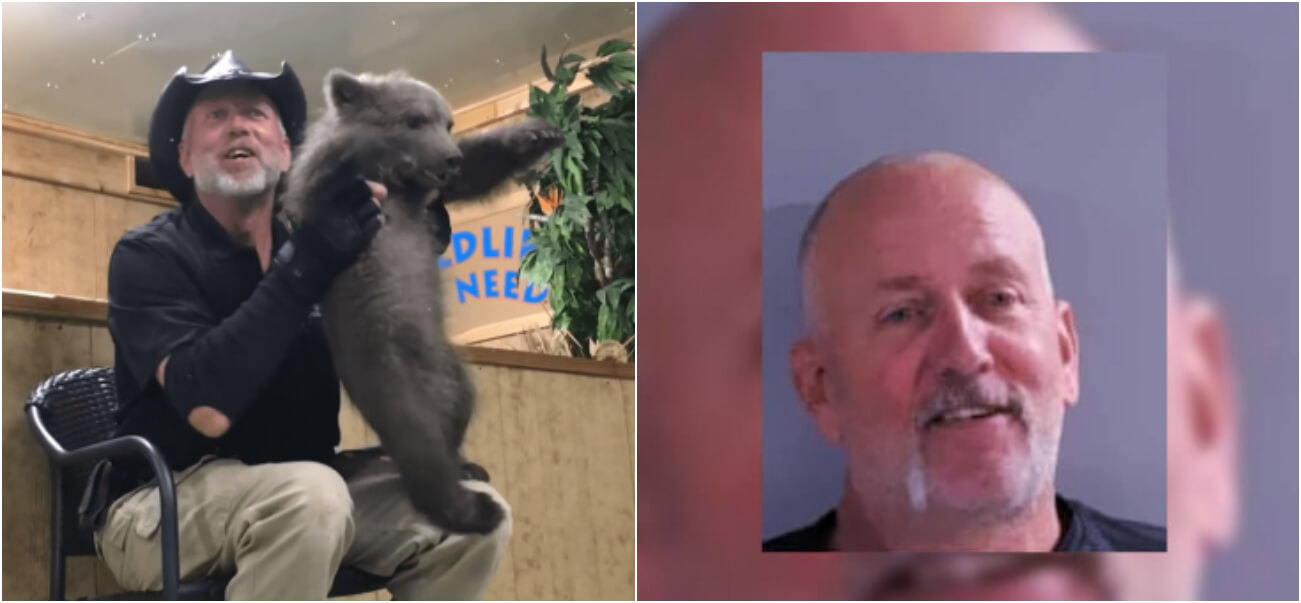PETA’s New Video Exposes ‘Tiger King 2’ Villain Tim Stark’s Cruelty to Cubs
In 2017, PETA filed an Endangered Species Act (ESA) lawsuit against notorious animal exhibitor and Tiger King 2 villain Tim Stark, his then-wife Melisa, and his now-defunct roadside zoo, Wildlife in Need, alleging that his cruel practices of prematurely separating tigers, lions, and tiger-lion hybrids from their mothers; declawing them; and using them for public encounters violated the federal ESA. In 2020, PETA won its lawsuit against Stark, setting a groundbreaking precedent that big-cat cub-petting encounters violate federal law.
As a result of our legal efforts, Stark can never again own ESA-protected big cats without seeking court permission. The court also ordered PETA to arrange permanent placement at accredited sanctuaries of the surviving big cats he had exploited. But his legal troubles were far from over.

A 2021 ruling from the Office of the Attorney General of Indiana prohibited Stark from “acquiring, owning, and exhibiting any exotic or native animals, including all mammals, birds, reptiles and amphibians.” This came after he had unlawfully used the nonprofit assets of Wildlife in Need for personal expenses, including a failed venture with another Tiger King villain, Jeff Lowe, in Oklahoma, which resulted in the deaths of numerous animals Stark had transported across state lines.
Who Is Tim Stark? New Video Exposes Cruelty of Tiger King 2 Villain
Former exotic-animal exhibitor Tim Stark beat a leopard to death with a baseball bat, he had the claws of big-cat cubs amputated, and his neglect and abuse led to the deaths of federally protected big cats. New video from PETA includes never-before-released footage of baby big cats who died at his facility following declawing surgeries:
A previous PETA video revealed that Stark once held a 14-week-old bear cub named Gizzy by her mouth. She showed signs of extreme distress and terror. Stark later transferred her to former business partner Lowe’s roadside zoo, where the U.S. Department of Agriculture found her in June 2020 in an emaciated condition.
Gizzy has since been rescued and placed at a true sanctuary.
Big-cat cubs can be exploited for petting for only about four months before they become too dangerous to be used in public encounters. Once they grow too large, they’re typically used as breeding machines to continue the cycle of cruelty, dumped at other roadside zoos or with private owners, locked in a cramped cage for years, or killed because they’re no longer profitable.
Take Action for Tigers and Other Big Cats
To help end public contact with tigers and other big cats as well as private breeding and possession of these animals, please let your U.S. representative and senators know that you support the Big Cat Public Safety Act (HR 263/S 1210), which would end private ownership of dangerous big cats, safeguarding both wild animals and communities across the U.S.
PETA makes it quick and easy to take action for animals using your phone or computer, so what are you waiting for?

